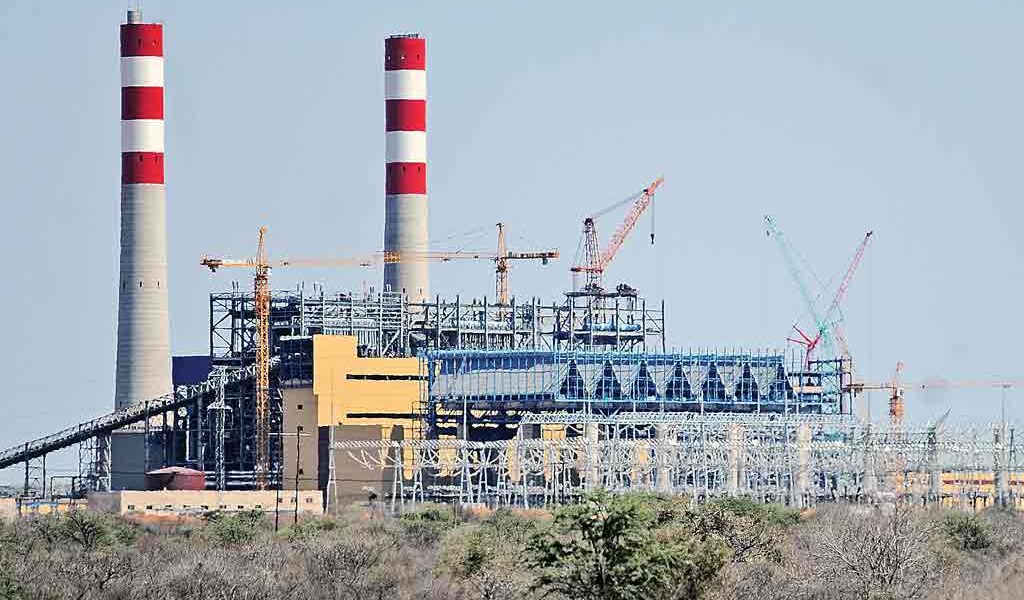TSHIAMO TABANE
China’s expected decline in coal consumption could negatively impact Botswana’s efforts to diversify mineral exports away from diamonds and increase export revenues.
According to the Chinese government, coal power generation is expected to account for 52% of the generation mix in 2026, down from an estimated 67% in 2016, a development which could significantly reduce the size of coal market that Botswana coal mining industry is targeting. With over 200 billion tonnes of coal resources, Botswana coal industry is in the process of developing the sector for domestic and export markets such as China.
This emerged following recent forecasts showing that China’s power mix could shift away from coal as power companies in the country are diversifying towards renewable, nuclear and gas.
In its recent 13th Power Plan, China emphasized the need to curb coal consumption and noted that implementation of the power mix transition plan would register a success. Recent data from research companies added that demand for coal in China is expected to drop as the country’s economy moves away from energy-intensive manufacturing and construction and becomes more dependent on the service sector. “Growth in demand for power in the country could wane over the coming decade after a temporary surge in 2016. Muted power consumption in conjunction with the continued expansion of renewable energy, nuclear and gas power, will see demand for coal declining,” said Business Monitor International.
The research company has indicated that the projected increase in coal prices could also result in the downturn in profits for coal-power plants and compel power utilities to shift away from generating power using coal. According to the company, thermal coal prices rose notably over 2016, increasing the input costs for utilities and the prices will remain elevated over the next five years compared to 2015 levels, resulting with high input costs for utilities. “We forecast average thermal coal prices in 2017 and 2018 of USD70/tonne and USD67/tonne, respectively, compared to an average of USD58.9/tonne in 2015,” wrote the company in the 2017 power market update.
It appears that in its bid to achieve the transition away from use of coal China has decided not to increase retail tariff prices for coal power companies after they were cut at the beginning of 2016. According to BMI a new mechanism was put in place to ensure that the tariffs are reviewed at the start of every year to reflect any volatility in the coal price over the previous year, however, the government left the tariffs unchanged for 2017 and researchers have indicated that this is a deliberate move intended to reduce use of coal in the country.
Botswana Institute for Development Policy Analysis (BIDPA) Researcher Margaret Sengwaketsi previously indicated that the United States which is another potential market for Botswana’s coal exports is expected to record decline in demand for coal. “In view of the fact that power plants are the largest source of carbon dioxide emissions in the United States and constitutes a third of all the domestic greenhouse gas emissions power plants are one of the main targets of the Clean Power Plan. A total of 1,000 fossil fuel fired power plants are covered by the proposed plan. Under the plan, it has been proposed a 30 per cent cut in carbon pollution from the power sector should be achieved by 2030,” she said.
The researcher noted that the debate and concerns on emission of green-house gases have not been limited to the developed countries, adding that South Africa produced two Long-Term Mitigation Scenarios that outline different strategies of reducing green-house emissions while Botswana has also acknowledged that climate change is a concern for development.
Botswana based coal mining and energy entity, Shumba Energy which is currently developing coal mines in the country- targeting the domestic market, US, China and Southern African countries among its export markets- believes that the expected decline in coal consumption is unlikely to impact on its revenues and production plans. In an interview with Gazette Business last week, Shumba Energy Managing Director Mashale Phumaphi said their main target market which is the regional power market is facing acute shortage of power and is compelled to import coal.

